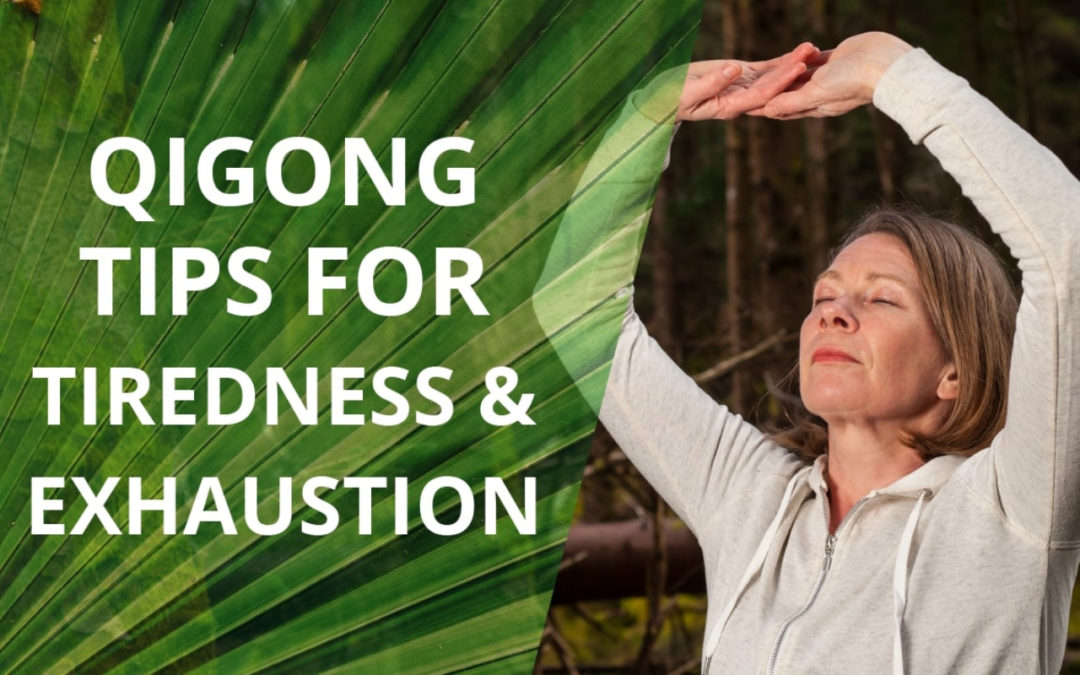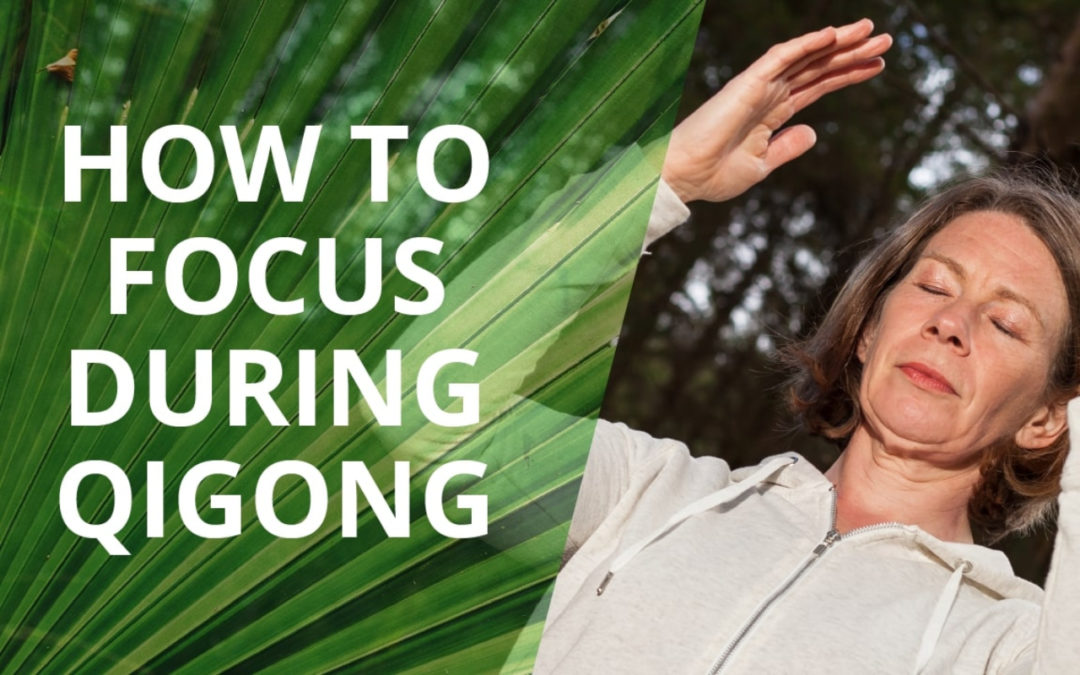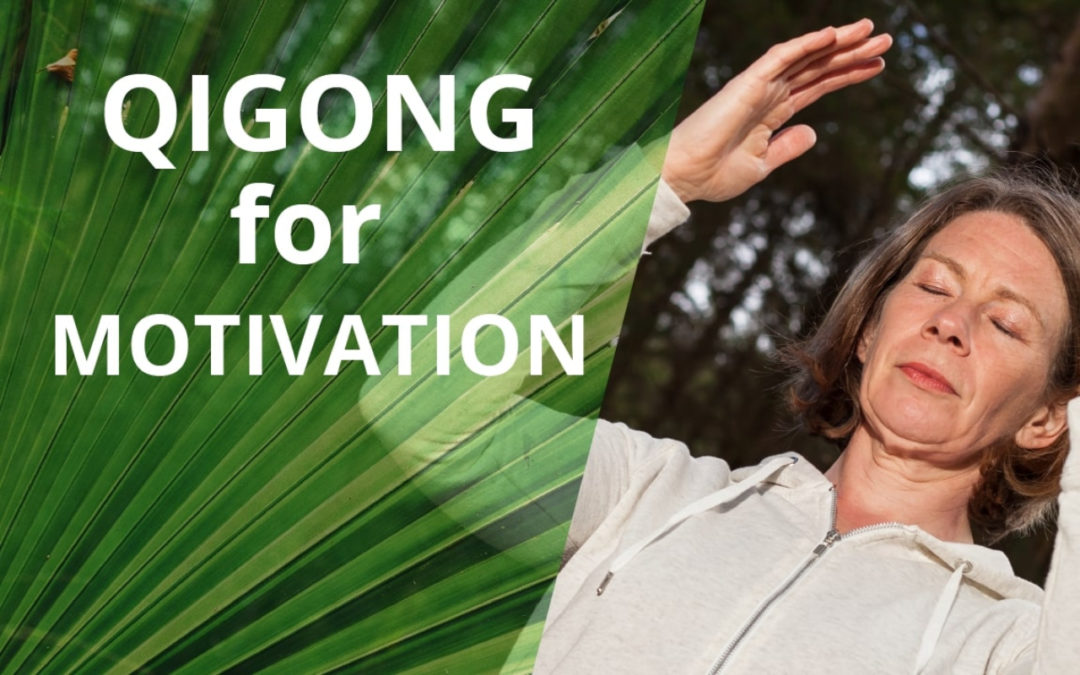
by janicetucker | 15 May 2017 | Qigong, Qigong Practice Guidelines & General Information, Qigong Routines, Qigong To Help Manage Specific Health Conditions
Some of the most common things my students say to me are, “I’m exhausted”, “I have no energy to motivate myself”, I’m tired all the time”. How many of you find yourselves saying these phrases, or ones like them, out loud? In this video I’m going to show you three fabulous tips using Qigong for tiredness. None of them take more than 5 minutes for you to achieve the transformation from exhausted to energised so get ready to follow along!
Janice Tucker is a practitioner of Traditional Chinese Medicine and Medical Qigong. She is also the founder of the Space To Relax online programme of Qigong video lessons.
Please don’t forget to subscribe to my YouTube channel by clicking the red “Subscribe” button so you don’t miss my regular videos which are full of useful health enhancing tips. These videos will help you to benefit your health and prevent illness from arising in the first place. Also please give this video a “Like” if you found it informative.
3 Tips On How To Use Qigong For Tiredness
1. Abdominal Breathing
By using simple abdominal breathing for only a few minutes you can extinguish exhaustion and increase your energy levels. This is because abdominal breathing is a more efficient way of breathing. You inhale more oxygen per breath than shallow chest breathing and thereby increase your energy. See my previous video blog on “How To Do Abdominal Breathing or Diaphragmatic Breathing” to learn this.
2. Simple Stretching
See the clip in the video to learn how to do a simple stretch up to the sky. This is a very simple way of utilising Qigong for tiredness.
Also, a simple twist of the upper body, head and neck will energise your whole spine with Qi and give you a lift in less than one minute if you are feeling exhausted.
3. Qigong Face Wash
Rub your hands together until they are hot then place them on your face. Rub your face up and down with your hands until you feel the heat has left the hands. This simple face wash is excellent for ridding any mental tiredness. It will instantly leave you feeling more awake and alive!
So, if you would like to learn some Qigong for yourself why not give it a go by heading over to the Space To Relax homepage? There you can sign up to receive three free video lessons which will be delivered to you by e-mail over the course of a few days. Also, for a free audio meditation “Calm Your Busy Mind In 8 Minutes” scroll to the bottom of the Space To Relax homepage to sign up for that.
Please don’t forget to subscribe to my YouTube channel by clicking the red “Subscribe” button. That way, you won’t miss my regular videos which are full of useful health enhancing tips. Also please give this video a “Like” if you learned much more about how to use Qigong for tiredness and exhaustion.
You can also head over to my free group on Facebook, “Space To Relax Free Group“. Leave any comments or questions for me there and I’ll be happy to answer them. By joining this group you will receive regular Qigong articles and videos with useful tips about how to use Qigong to improve your state of health.
home

by janicetucker | 8 May 2017 | Qigong, Qigong Practice Guidelines & General Information
I am constantly asked by people, “What is Qigong?”. I often start by asking if they have ever heard of Taiji (Tai Chi). If they have then I can use their level of understanding of Tai Chi to explain about Qigong. In the video above I’ll be answering the question, “What are the differences between Qigong and Tai Chi?”.
Janice Tucker is a practitioner of Traditional Chinese Medicine and Medical Qigong, and the founder of the Space To Relax online programme of Qigong video lessons.
Please don’t forget to subscribe to my YouTube channel by clicking the red “Subscribe” button in Youtube so you don’t miss my regular videos which are full of useful health enhancing tips. These videos will help you to benefit your health and prevent illness from arising in the first place. Also please give this video a “Like” if you found it informative.
The 7 Main Differences Between Qigong and Tai Chi
1. Tai Chi is a form of Qigong
Qigong is the basis of Tai Chi. The focus of your breath and mind is cultivated in Qigong practice and is the underlying foundation of Tai Chi.
2. Tai Chi is a martial art and Qigong is used for wellness and healing
Qigong utilises specific exercises for healing. Tai Chi does not do this, even though many people practice Tai Chi for healing and wellbeing purposes. Qigong does not involve any attack/defence or fighting movements as Tai Chi does although Qigong techniques can help you to improve your power and self defence techniques if you are practising Tai Chi or Kung Fu.
3. Tai Chi and Qigong make use of different movements
Qigong includes movements which you can performed from a sitting or lying down position whereas Tai Chi generally uses standing movements. Both focus on slow movements in general, although not always.
4. Tai Chi and Qigong may work with Qi differently
Often, in Qigong, separate movements focus on specific Qi functions, especially in medical Qigong. In Tai Chi the movements tend not to do this and work more on whole body function and movement of Qi.
5. The complexity of movement in Tai Chi and Qigong is different
Qigong uses very simple movements whereas Tai Chi uses more complex stances, movements and forms.
6. Tai Chi utilises forms whereas Qigong does not
Qigong does not make use of the forms used in Tai Chi but instead is based on a series of exercises that you can tailor to your individual health needs at any particular time.
7. Qigong is more adaptive than Tai Chi
Some Tai Chi movements and stances can be difficult to perform for anyone with any physical restriction or injury. Because Qigong is more of a free form practice then the you can adapt the simple movements of Qigong to your own needs and abilities.
So, if you would like to learn some Qigong for yourself why not give it a go by heading over to the Space To Relax homepage? There you can sign up to receive three free video lessons. They will be delivered to you by e-mail over the course of a few days. Also, to get a free audio meditation “Calm Your Busy Mind In 8 Minutes” scroll to the bottom of the Space To Relax homepage.
Please don’t forget to subscribe to my YouTube channel by clicking the red “Subscribe” button. That way, you won’t miss my regular videos which are full of useful health enhancing tips. Also please give this video a “Like” if you learned much more about the differences between Qigong and Tai Chi.
You can also head over to my free group on Facebook, “Space To Relax Free Group” and leave any comments or questions for me there. I’ll be happy to answer them. Also, by joining this group, you will receive regular postings of Qigong articles and videos with useful tips about how to use Qigong to improve your state of health.
home

by janicetucker | 20 Apr 2017 | Qigong, Qigong Practice Guidelines & General Information, Qigong Routines
Qigong is the practice of co-ordinating your movement, breath and mind to promote the free flow of energy (Qi) around your body. In this way the body can heal itself and come back into a healthy balance. One of the difficulties my students experience is how to focus during Qigong and stay relaxed enough to allow for the open flow of Qi. They often find it hard to balance the mind, the breath and the movement with the relaxation that is necessary in order to promote unimpeded Qi flow. This video on how to focus during Qigong will show you exactly how to do this.
Janice Tucker is a practitioner of Traditional Chinese Medicine and Medical Qigong. She is also the founder of the Space To Relax online programme of Qigong video lessons.
Please don’t forget to subscribe to my YouTube channel so you don’t miss my regular videos which are full of useful health enhancing tips. These videos will help you to benefit your health and prevent illness from arising in the first place. Also please give this video a “Like” if you found it informative.
How To Focus During Qigong Practice
1. “Sloppy”, casual focus of your mind
Pay “sloppy” almost casual focus with your mind to what you are doing. Do not concentrate with a “laser beam” focus on what you are trying to do. Rather, pay fleeting attention to your movements and breath, then let it go.
2. Observe
Observe what is happening as though you are watching and playing no part. You are simply observing the exercise, the flow of Qi, the breath and sensations in your body.
3. Relax and breathe
All you are doing is allowing, making a clear pathway for the Qi to flow. You do this by relaxing. Relaxation is the key.
4. The Qi Reorders Itself
By relaxing the Qi reorders itself because you are not doing anything to block this from happening.
5. Health and balance are restored
Once the Qi has reordered itself this promotes the self-healing mechanisms in your body and mind so that your physical, mental and emotional health come back in to equilibrium.
Summary
If you focus too much, like a laser beam, all you will do is give yourself a headache. Don’t try to force things too much. You are not moving the Qi with your body, breath or mind. The more you try to force things to happen the more the Qi stagnates. You are simply relaxing and breathing, paying casual attention so that the pathways along which Qi can flow become more open, unobstructed and unimpeded. It should feel effortless, calm and relaxed. This is the whole essence of how to focus during Qigong practice.
What Do I Do Next?
So, now you know how to focus during Qigong practice why not give it a go by heading over to the Space To Relax homepage? There you can sign up to receive three free video lessons which will be delivered to you by e-mail over the course of a few days. Also, for a free audio meditation “Calm Your Busy Mind In 8 Minutes” scroll to the bottom of the Space To Relax homepage to sign up for that.
You can also head over to my free group on Facebook, “Space To Relax Free Group” and leave any comments or questions for me there. I’ll be happy to answer them. Also, by joining this group, you will receive regular Qigong articles and videos with useful tips about how to use Qigong to improve your state of health.
Please don’t forget to subscribe to my YouTube channel so you don’t miss my regular videos which are full of useful health enhancing tips. Also please give this video a “Like” if you learned much more about how to focus during Qigong practice.
home

by janicetucker | 9 Mar 2017 | Qigong, Qigong & Emotional Issues, Qigong Practice Guidelines & General Information
What’s so interesting about Qigong is that not only does it benefit you but its influence reaches farther afield. Qigong can significantly improve your relationships and also cause positive changes in the behaviour of those around you. When you start to change for the better so do those around you! The reasons for this are what I’ll be talking to you about in this post which is Part 2 of the “Benefits of Qigong” mini series (To watch Part 1 click here).
Janice Tucker is a practitioner of Traditional Chinese Medicine and Medical Qigong. She is also the founder of the Space To Relax online programme of Qigong video lessons.
Please don’t forget to subscribe to my YouTube channel so you don’t miss my regular videos which are full of useful health enhancing tips. These videos will benefit your health and prevent illness from arising in the first place. Also please give this video a “Like” if you learned something today. 🙂
The 3 Main Benefits of Qigong In Your Relationships
1. Fewer Arguments
Practicing Qigong means that you become less stressed and more calm (this is one of the main benefits of Qigong for you). The result is that you are less irritable, tired and overwhelmed. You are therefore less snappy and short tempered with your loved ones, work colleagues, etc. You become more pleasant to be around. Consequently you are far less likely to get sucked into arguments. Ask yourself, how much patience do you have when you are exhausted compared with when you are not?
2. You Are More Valued
Another one of the main benefits of Qigong is that by increasing your energy levels you have more motivation to get out there and do things with family and friends. They then feel more valued by you so they feel happier. Your relationship with them is improved, often far beyond any expectations you might have had!
3. You Inspire Others
When others around you see you being calm, relaxed, stress free, vibrant and energetic you inspire them to be like this too.
What Do I Do Next?
If you want to improve your relationships then practice more Qigong by heading over to the Space To Relax homepage. There you can sign up to receive three free video lessons which will be delivered to you by e-mail. Also, you can download a free audio meditation “Calm Your Busy Mind In 8 Minutes” by scrolling to the bottom of the Space To Relax homepage.
Why not share the video series and audio meditation with friends and family? If everyone is enjoying the benefits of Qigong then imagine how harmonious family/work life would be! Practice in a group with your family. Children love Qigong as they think it’s magic!
If you already practice Qigong then I’d love to hear about your experiences of how it has influenced your relationships. Head over to my free group on Facebook, “Space To Relax Free Group“. There you can leave any comments or questions for me and the other group members. Also, by joining this group, you will have access to Qigong articles and videos with really useful tips about how to use Qigong to improve your state of health.
Please don’t forget to subscribe to my YouTube channel so you don’t miss my regular videos which are full of useful health enhancing tips. Also please give this video a “Like” if you learned much more about some of the lesser known (but super important) benefits of Qigong.
home

by janicetucker | 21 Feb 2017 | Qigong, Qigong & Emotional Issues, Qigong Practice Guidelines & General Information, Qigong Routines
Recently I asked the members of my “Space To Relax Free Group” on Facebook what they would like to learn about regarding Qigong and how it can help them. One great suggestion from Kathy was about how to stay motivated, on track and avoid slipping back into bad habits. This is such a great question! Today I’m going to be talking to you about how to stay motivated and also how to use Qigong for motivation.
Janice Tucker is a practitioner of Traditional Chinese Medicine and Medical Qigong, and the founder of the Space To Relax online programme of Qigong video lessons.
Please don’t forget to subscribe to my YouTube channel by clicking the red “Subscribe” button above so you don’t miss my regular videos which are full of useful health enhancing tips. These videos will help you to benefit your health and prevent illness from arising in the first place. Also please give this video a “Like” if you found it informative.
My 7 Top Methods Using Qigong For Motivation
1. Choose something you like to do
To stay motivated for Qigong or any other exercise it is important to choose something that you like to do. By now many of you will have access to a number of Qigong methods. Choose your favourites as then you are more likely to maintain your practice.
2. Pick a regular time to practice
It is easier to stay on track with Qigong (or any good habit) if you pick the same time every day to practice. First thing in the morning works best for me as then my practice is done and I have set myself up in the best possible way for the rest of the day. Also, if I have more time at the end of the day, I’ll do more. A regular practice time will really help you to stay on track. Once you can do this, you will see how you can use Qigong for motivation in other areas of your life.
3. Keep a record of you observations
Keeping a diary or journal of your observations will allow you to see how much progress you are making. Once a few weeks have passed and you look at your journal you will see the difference between where you were before and where you are right now.
4. Practice with friends and family
Certainly with Qigong there is huge benefit in practising with friends and family. The presence of a group enhances the “Qi field” (see my blog on “What is a Qi Field?“) of everyone practising. Similarly, with other exercise such as walking, running, cycling, it is much easier to do it and stay motivated as you can encourage one another.
5. Celebrate your successes
Don’t give yourself a hard time if you don’t practice or exercise every single day. Instead focus on all the good things that you are doing. If you have set yourself a milestone, e.g. to practice 10 minutes of Qigong every day for one week, then when you achieve this CELEBRATE! Go out and do something that you love to do to celebrate that milestone. This is important.
6. Be kind to yourself
If you miss a couple of days of practice, don’t give yourself a hard time. Simply get back on track as soon as possible. Realise that you are only human. You are not a robot. You can pick up your goal and resume progressing towards it as soon as possible.
7. Start small to get motivated
If you find you have no motivation to get going then pick the tiniest thing that you feel you would like to do and just do that. Start with a small thing and build it up slowly. Over time you will find that things do get easier for you to carry forward with some momentum.
If you want to start small and learn some Qigong by practising for a few minutes each day, or getting really clever, and learning how to integrate Qigong into your day then head over to the Space To Relax homepage. There you can sign up to receive three free video lessons which will be delivered to you by e-mail over the course of a few days. Also, for a free audio meditation “Calm Your Busy Mind In 8 Minutes” scroll to the bottom of the Space To Relax homepage to sign up for that.
I’d love to hear what you do to stay motivated. What do you do to stop yourself from slipping back into bad habits? How do you use Qigong for motivation? You can head over to my free group on Facebook, “Space To Relax Free Group” and leave any comments or questions for me there. I’ll be happy to answer them. Also, you will receive regular postings with useful tips about how to use Qigong to improve your state of health.
Please don’t forget to subscribe to my YouTube channel by clicking the red “Subscribe” button on my channel page. That way, you won’t miss my regular videos which are full of useful health enhancing tips. Also please give this video a “Like” if you learned much more about how to use Qigong for self care.
home






